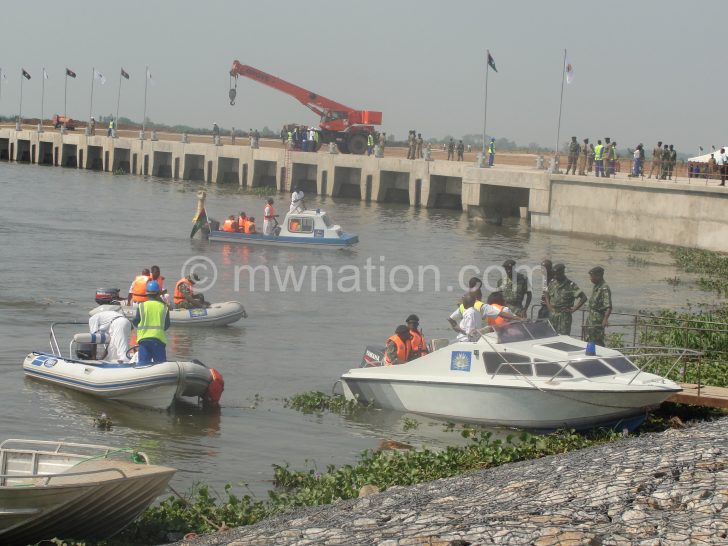Tread carefully on Nsanje port—MCCCI
Government must tread carefully on the Nsanje Inland Port because the project can backfire as it did in 2010, the Malawi Confederation of Chambers of Commerce and Industry (MCCCI) and Economics Association of Malawi (Ecama) have warned.
The Nsanje Inland Port is meant to link Nsanje and Chinde in Mozambique through the Shire-Zambezi rivers. Through the project, Malawi can save up to $175 million in travel costs, government documents show.

In 2010, the project faced stiff resistance from Mozambique, which at the time did not want to invest in it because the transport policy in Mozambique was to develop transport by rail and road, and the country has no industry based along the Zambezi river.
The debate on the viability of the project has resurfaced after Minister of Finance, Economic Planning and Development, Goodall Gondwe in his 2017/18 Budget Statement last Friday said the port will be one of the priority projects this financial year.
However, speaking in separate interviews on Tuesday, MCCCI president Karl Chokhotho and Ecama president Henry Kachaje said government needs to clear all the hurdles that derailed the project in 2010 before spending more public money on it.
Chokhotho also said industry players are also still not convinced that the project will cut transport costs.
“Stakeholders including the clearing and forwarding [agents] association members and shipping and line representatives who are members of MCCCI are yet to be convinced if handling charges will be reduced by using the Nsanje Inland Port.
“No one has demonstrated how increased handling by using Nsanje Inland Port will reduce costs and increase efficiency,” he said.
Chokhotho said the current scenario is that goods arrive at Beira and are loaded onto trucks and Mozambique charges landing costs.
“With the Nsanje Inland Port it means charges will double as Malawi will also be charging handling costs and this will mean that goods will be expensive as the added costs will be passed on to the consumer. We are asking government not to start spending any money on the project until all these grey areas have been sorted out,” he said.
Chokotho said the other problem is that Escom is already complaining of high siltation in the Shire River and dredging will be cumbersome as the sand removed from Shire will have to be taken to the Indian Ocean because it cannot be disposed off anyhow.
“Escom is complaining of siltation in Shire River so how come are we being told that the river is navigable. Was a feasibility study undertaken to ascertain that there is no siltation. We need to be told of the results of the feasibility study,” he added.
On his part, Kachaje asked government to give more information on the results of the feasibility study on the project to assure the general public that the project can be conducted without challenges as was the case in 2010.
“We needed to be more informed about the results of the feasibility study that was conducted. We also need to be told on the keenness of Mozambique of this project because we may end up spending money on a project and it will not take off.,” said Kachaje.





